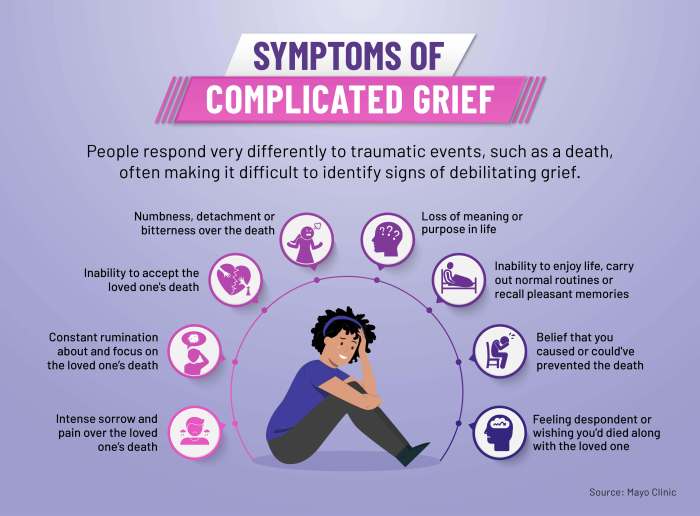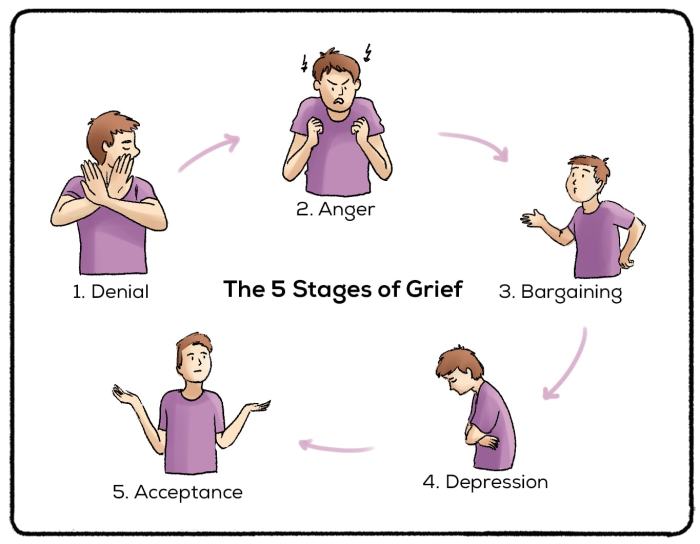Hesi case studies loss grief and death – Embarking on an exploration of HESI case studies on loss, grief, and death, this comprehensive analysis delves into the profound impact these experiences have on individuals and the crucial role nurses play in providing support. Through real-life case studies, we unravel the complexities of grief, its manifestations, and evidence-based nursing interventions.
Navigating the emotional landscape of loss, this discussion sheds light on the ethical considerations in end-of-life care, ensuring patient autonomy, informed consent, and cultural sensitivity. By examining case studies in palliative care, the emergency department, and long-term care settings, we uncover the unique challenges and strategies for supporting grieving individuals.
Understanding HESI Case Studies on Loss, Grief, and Death

HESI case studies are essential tools in nursing education, providing real-life scenarios that explore complex topics like loss, grief, and death. These case studies enable students to develop critical thinking skills, enhance their understanding of patient experiences, and prepare them to provide compassionate care.
Examples of HESI case studies on loss, grief, and death include:
- A patient experiencing grief after the loss of a loved one
- A family coping with the terminal illness of a parent
- A healthcare professional dealing with the death of a patient
Exploring the Impact of Loss and Grief on Individuals
Loss and grief are universal experiences that can profoundly impact individuals’ physical, emotional, and mental well-being. The stages of grief, as proposed by Elisabeth Kübler-Ross, include denial, anger, bargaining, depression, and acceptance. These stages are not linear and can manifest differently in each person.
The impact of loss and grief can manifest in various ways, such as:
- Physical symptoms: fatigue, insomnia, changes in appetite
- Emotional symptoms: sadness, anger, guilt, loneliness
- Mental symptoms: difficulty concentrating, impaired memory, suicidal thoughts
Case studies provide insights into the lived experiences of individuals coping with loss and grief. They illustrate the challenges and triumphs faced by patients and families during this difficult time.
Nursing Interventions for Supporting Grieving Individuals
Nurses play a vital role in supporting grieving individuals. Evidence-based nursing interventions include:
- Providing a safe and supportive environment
- Active listening and validation of feelings
- Encouraging self-care and healthy coping mechanisms
- Referrals to counseling or support groups
Case studies demonstrate the effectiveness of these interventions in alleviating distress and promoting healing among grieving individuals.
Ethical Considerations in End-of-Life Care, Hesi case studies loss grief and death
End-of-life care involves complex ethical considerations that guide nursing practice. These principles include:
- Respecting patient autonomy and informed consent
- Relieving suffering and promoting comfort
- Preserving dignity and honoring cultural beliefs
Case studies highlight the challenges and decision-making processes involved in providing ethical end-of-life care, ensuring patient well-being and respecting their wishes.
Case Study Analysis: Grief and Loss in Palliative Care
| Patient Demographics | Medical History | Grief Manifestations | Nursing Interventions |
|---|---|---|---|
| 75-year-old female | Terminal cancer | Sadness, withdrawal, fear of abandonment | Active listening, validation, providing emotional support, referral to counseling |
This case study illustrates the challenges of providing support to patients experiencing grief in a palliative care setting. Nurses must balance providing comfort and hope while respecting patient autonomy and end-of-life wishes.
Case Study Analysis: Grief and Loss in the Emergency Department
| Patient Demographics | Trauma History | Grief Manifestations | Nursing Interventions |
|---|---|---|---|
| 25-year-old male | Sudden death of a close friend in a car accident | Shock, disbelief, anger, guilt | Crisis intervention, providing a safe space to express emotions, referral to support groups |
This case study highlights the unique challenges of providing support in acute care settings. Nurses must quickly assess the patient’s emotional state and implement appropriate interventions to mitigate distress and facilitate coping.
Case Study Analysis: Grief and Loss in Long-Term Care
| Patient Demographics | Chronic Conditions | Grief Manifestations | Nursing Interventions |
|---|---|---|---|
| 82-year-old female | Dementia, Alzheimer’s disease | Confusion, agitation, repetitive questioning about loved ones | Validation of feelings, providing reassurance, creating a calming environment, reminiscence therapy |
This case study emphasizes the importance of supporting grieving residents in long-term care facilities. Nurses must adapt their interventions to the cognitive and physical limitations of patients, ensuring they feel valued and connected.
Questions Often Asked: Hesi Case Studies Loss Grief And Death
What is the significance of HESI case studies in nursing education?
HESI case studies provide realistic scenarios that allow nursing students to apply their knowledge and skills in a safe and controlled environment, fostering critical thinking and decision-making abilities.
How do HESI case studies help nurses understand the impact of loss and grief?
HESI case studies expose nurses to the diverse ways in which individuals experience loss and grief, enabling them to develop empathy, active listening skills, and validation techniques to support grieving patients and families.
What are some ethical considerations in end-of-life care?
Ethical considerations in end-of-life care include respecting patient autonomy, obtaining informed consent, and adhering to cultural beliefs and values to ensure that the patient’s wishes are honored.



